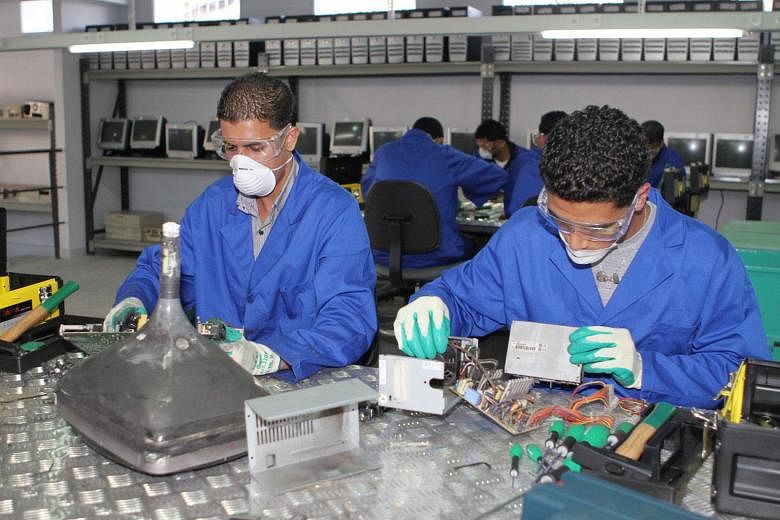One-quarter of Moroccans between the ages of 15 and 24 are so-called "Neets": not in education, employment or training.
Idle and excluded, these individuals number 1.7 million in all.
The situation is a ticking time-bomb in Moroccan society.
Becoming a Neet often starts with under-performing academically or dropping out of school. Each year, state schools lose between 250,000 and 350,000 students. (The figure was 315,273 last year.)
With few qualifications, these young people go from one low-paid, unstable job to another, or just stop working altogether.
Al Jisr is familiar with this category of young person: unmotivated and lost. The non-governmental organisation's (NGO) mission is to teach these people a trade and help them develop soft skills that will ease them into the job market.
Around 10 years ago, Al Jisr launched the Green Chip initiative in collaboration with several partners, including the Middle East Partnership Initiative (MEPI), an American grant-funding mechanism.
The programme enables young people to learn about hardware by taking apart old computers.
Every year, the NGO collects used computers and other IT equipment from dozens of companies and public offices.
The recovered material ends up at Al Jisr's two training centres in Casablanca and Oujda.
Young interns repair serviceable computers, which are donated to state schools.
The others are dismantled and sent to Moroccan mining giant Managem, a project partner, which extracts the minerals inside.
Al Jisr recovers 150 to 200 tonnes of electronic waste each year, using it to achieve three goals: teach young people a trade, recycle electronic waste, and supply state schools with IT equipment, thus reducing the digital divide in the education sector.
The one-year course, which includes a three-month internship, is 80 per cent hands-on.
Graduates receive an "IT maintenance agent" diploma and a "dismantlement agent" certificate.
Students receive a monthly stipend of 1,000 Moroccan dirhams (S$140) in Casablanca, or 500 dirhams in Oujda.
This income motivates them to follow the course through to the end.
The trainees also attend language and communications classes, as well as workshops on the arts, entrepreneurship and that teach job-hunting skills.
At the end of the programme, Al Jisr helps them find jobs.
"Their employment uptake rate is around 60 per cent - a decent performance," says the association's president Mohamed Lahlou. •

